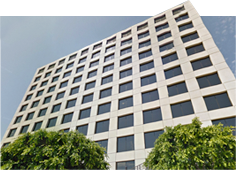State of the National Visa Center (NVC)
The National Visa Center — an Integral Role in the Immigrant Visa Process
As many of our readers know, the Department of State’s National Visa Center is the “middle place” where their immigration case goes after USCIS approves the immigration petition and before visa interview scheduling at the U.S. Embassy abroad commences. Long gone are the days where 10 weeks after approval of the petition by USCIS, the applicant reliably walks out of the U.S. Consulate, Immigrant Visa in-hand. The time from petition approval to Embassy Interview can now stretch up to 5 months, or more in the case of administrative processing referral.
To the credit of the State Department, officials have been forthright about the reasons for the heavy backlog, are aware of current processing issues and appear to have a genuine willingness to improve the process.
On January 21, 2015, I attended a meeting in which a State Department Visa Office attorney appeared before Los Angeles area immigration attorneys and answered questions relating to current NVC processing. I have also reviewed notes from a November 2014 meeting between NVC officials and the American Immigration Lawyers Association (AILA). This article aims to synthesize the information gleaned about the nature of the current NVC backlog, and to provide general background information about the role of the NVC in the Immigrant Visa process.
What is the National Visa Center?
The NVC opened in 1994 with the aim of easing the visa processing and administrative task of U.S. Embassies and Consulates abroad. Stated simply, it is the go-between between the USCIS in the U.S. and the U.S. diplomatic posts abroad which issue visas. Whereas USCIS and the posts perform substantive adjudications, the NVC is an administrative processing center. The NVC is involved in the collection of civil and financial documents from applicants and scheduling of immigrant visa interviews. The NVC also ships immigration case files to post.
What Types of Cases Does the NVC process?
The NVC processes the following petitions: I-130; I-140; I-730; I-129F; I-600; I-600A; I-800; I-360; and I-526. In FY2014, the NVC received 709,000 cases from USCIS, of which 99,000 were family-based petitions whose priority date was current. During the same period, the NVC shipped 349,000 cases to posts around the world. In FY2014, the NVC received approximately 1.4 million pieces of incoming mail, and shipped 3.3 million pieces of outgoing mail.
Why is my Case Taking so Long at the NVC?
During 2014, the NVC’s workload substantially increased. Whereas in recent years, the NVC received approximately 8,000 petitions/cases from USCIS per week, in 2014 that number increased to up to 25,000 per week. According to the NVC, that number has since stabilized at approximately 17,000 new cases received per week. The NVC is staffed by approximately ten (10) Department of State employees and over 560 federal contractors, who are tasked with working through the cases.
According to Department estimates, in FY2014, NVC staff received 1.7 million written inquiries, 1.6 million telephone calls, and 98,000 written inquiries. Due to the unprecedented workload, delays from target processing timeframes are currently a fact of life. The document review phase (the time after civil/financial documents are received by the NVC and the case is cleared for interview scheduling) is currently about 55 days. Department officials confirm that additional staff is being hired, and current staff is being cross-trained to address the backlog issues. Further, a phone system upgrade, which will hopefully make it easier to speak with a representative, is scheduled to go live in February, 2015.
Carefully Following I-864 and DS-260 Requirements is Critical
For now, attorneys and applicants are left to carefully comply with NVC requirements and to be as patient as possible. Failure to submit proper civil documents or translations; incorrectly completing the Affidavit of Support; or failing to substantiate the Affidavit of Support with evidence of financial support are common reasons for why the NVC may request further information on a case.
To avoid delays, all NVC instructions with respect to submission of financial and civil documents, fees and Form DS-260 should be painstakingly followed to avoid the chance of a processing delay. Consulting with an Immigration Attorney experienced in current processing trends at the NVC may also shed light on how to avoid a delay or respond to a Request for Evidence.






